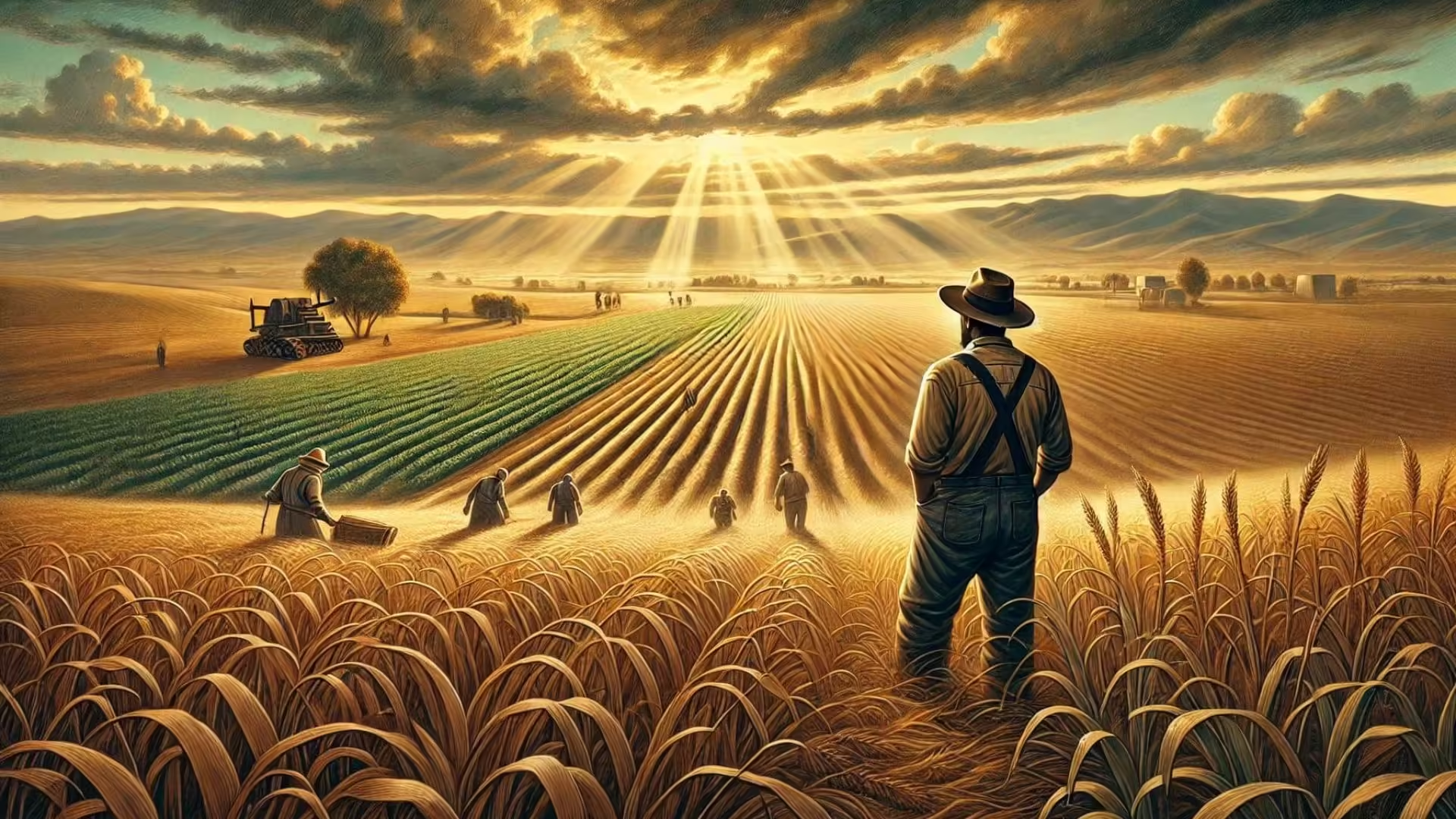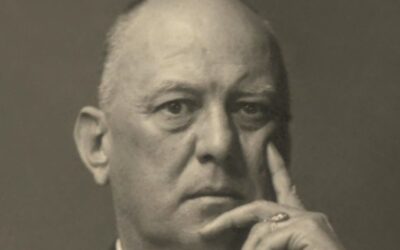The Gist
Cesar Chavez, a name synonymous with labor rights and civil justice, stands as one of the most influential figures in American history. His lifelong commitment to improving the lives of farm workers and his broader contributions to the civil rights movement continue to inspire activists and labor advocates worldwide. Chavez’s work reshaped the landscape of labor rights, bringing attention to the struggles of marginalized agricultural workers and emphasizing the power of nonviolent protest.
Early Life and Background
Cesar Chavez was born on March 31, 1927, in Yuma, Arizona, to a family of Mexican-American farm laborers. Growing up, Chavez faced the harsh realities of farm life firsthand. His family lost their home during the Great Depression and moved to California, where they became migrant farm workers. As a child, Chavez attended more than 30 different schools, often working alongside his parents in the fields. These early experiences of poverty, exploitation, and discrimination laid the foundation for his life’s work.
Chavez’s formal education ended after eighth grade, as he left school to help support his family. Despite this, he became a voracious reader and developed a passion for learning, particularly about social justice, labor movements, and civil rights. Chavez’s early exposure to the struggles of farm workers motivated him to fight for better working conditions, wages, and dignity for agricultural laborers.
Chavez’s Rise as a Labor Leader
In the 1950s, Chavez began working with the Community Service Organization (CSO, a Latino civil rights group, where he organized voter registration drives and campaigns against racial and economic discrimination. However, his calling to improve the conditions of farm workers remained strong, and in 1962, Chavez co-founded the National Farm Workers Association (NFWA with Dolores Huerta, which later became the United Farm Workers (UFW). This organization would become the vehicle for one of the most significant labor movements in American history.
One of Chavez’s greatest achievements came in the mid-1960s, during the Delano Grape Strike, when he and the UFW led a nationwide boycott of table grapes. Farm workers were protesting their poor working conditions, long hours, and low wages. Chavez’s leadership in the strike, along with his commitment to nonviolent protest, garnered national attention and widespread support. Chavez himself went on several hunger strikes during this period, using them as a powerful tool to highlight the farm workers’ plight.
The boycott lasted for five years, and in 1970, the pressure paid off when growers agreed to sign contracts that improved wages and working conditions for thousands of farm workers. This victory was a turning point for labor rights in the agricultural sector and one of Chavez’s most significant accomplishments. It also cemented his place as a champion of social justice.
Nonviolence and Activism
Cesar Chavez was deeply inspired by the teachings of Mahatma Gandhi and Dr. Martin Luther King Jr., adopting nonviolent resistance as the core of his activism. His methods included strikes, boycotts, marches, and fasts, all aimed at drawing attention to the struggles of farm workers. Chavez’s famous 25-day fast in 1968, which he undertook to reaffirm his commitment to nonviolence, attracted nationwide support, including that of Senator Robert F. Kennedy.
Chavez’s philosophy of nonviolence not only underscored his labor organizing efforts but also served as a powerful example of how marginalized groups could effect change without resorting to violence. His peaceful protests became a hallmark of his leadership and inspired countless others in the labor and civil rights movements.
Legacy and Influence
Cesar Chavez’s legacy extends far beyond the labor movement. His work had a profound impact on civil rights, Latino empowerment, and environmental justice. His tireless advocacy for the rights of the poorest and most exploited workers helped shine a spotlight on the inequalities that plagued American society. Chavez believed in the inherent dignity of all people, regardless of their socioeconomic status, and his message of equality and justice resonated with millions.
The United Farm Workers, under Chavez’s leadership, achieved several critical milestones, including securing collective bargaining rights for farm workers in California. Chavez also helped raise awareness about the dangers of pesticides and the need for safer working conditions in the fields, contributing to broader discussions about workers’ rights and environmental safety.
In 1994, after Chavez’s death in 1993, he was posthumously awarded the Presidential Medal of Freedom, the highest civilian honor in the United States, by President Bill Clinton. The award recognized his unwavering dedication to improving the lives of farm workers and his enduring contributions to civil rights. To this day, Chavez is remembered and honored through Cesar Chavez Day, celebrated on his birthday, March 31, as a day of service in several states.
Why Cesar Chavez Still Matters Today
Cesar Chavez’s influence continues to be felt across the fields of labor rights, civil rights, and environmental justice. His fight for justice and equality resonates with ongoing movements for workers’ rights, immigrant rights, and social justice in general. Chavez demonstrated that collective action, combined with peaceful resistance, could lead to significant societal changes.
His legacy is particularly important today as discussions about fair wages, workers’ conditions, and immigration reform remain at the forefront of political and social debates. Chavez’s life serves as a reminder of the power of grassroots movements and the ability of individuals to create lasting change through determination, resilience, and compassion.
Cesar Chavez’s life was dedicated to improving the lives of the voiceless and marginalized. Through his leadership in the farm workers’ movement, his commitment to nonviolence, and his relentless pursuit of justice, Chavez changed the landscape of labor rights in the United States. His legacy endures as a testament to the power of ordinary people to achieve extraordinary change. As we reflect on his contributions, we are reminded that the fight for equality and justice is ongoing and that the principles Cesar Chavez stood for—dignity, respect, and human rights—are as relevant today as they were during his lifetime.
Expand Your Vocabulary
- Advocate
Definition: A person who publicly supports or recommends a particular cause or policy.
Contextual Use: Cesar Chavez was a passionate advocate for farm workers’ rights.
Everyday Use: “She is a strong advocate for environmental protection, always speaking up for green initiatives.” - Exploitation
Definition: The act of treating someone unfairly in order to benefit from their work.
Contextual Use: Chavez fought against the exploitation of migrant farm workers, who were underpaid and overworked.
Everyday Use: “Many workers in developing countries face exploitation due to low wages and unsafe working conditions.” - Migrant
Definition: A person who moves from one place to another, often for work.
Contextual Use: Chavez’s family became migrant farm workers, traveling across California to find work.
Everyday Use: “Migrant workers move from place to place, often following seasonal jobs in agriculture.” - Nonviolent Resistance
Definition: The practice of achieving goals through symbolic protests and peaceful actions without the use of violence.
Contextual Use: Chavez was deeply committed to nonviolent resistance, drawing inspiration from Gandhi and Dr. King.
Everyday Use: “The protestors used nonviolent resistance to demand social change, marching peacefully and refusing to retaliate.” - Collective Bargaining
Definition: Negotiation of wages and other conditions of employment by an organized body of employees.
Contextual Use: Chavez fought to secure collective bargaining rights for farm workers, allowing them to negotiate fair wages.
Everyday Use: “The union won collective bargaining rights, which allowed workers to negotiate better pay and benefits.” - Boycott
Definition: A form of protest involving the refusal to buy or use certain products or services.
Contextual Use: The nationwide grape boycott led by Chavez put pressure on growers to improve working conditions.
Everyday Use: “Consumers organized a boycott of the brand after news of its unfair labor practices was made public.” - Marginalized
Definition: To treat a person or group as insignificant or peripheral.
Contextual Use: Chavez’s movement aimed to empower farm workers, who had long been marginalized in society.
Everyday Use: “Many minority groups feel marginalized when their voices aren’t heard in public debates.” - Grassroots
Definition: A movement or campaign that starts at a local level with ordinary people, rather than being led by political leaders.
Contextual Use: Chavez’s grassroots movement involved everyday farm workers organizing for their rights.
Everyday Use: “The environmental campaign started as a grassroots effort with volunteers going door-to-door.” - Empowerment
Definition: The process of becoming stronger and more confident, especially in controlling one’s life and claiming one’s rights.
Contextual Use: Chavez believed in the empowerment of farm workers to demand better treatment and conditions.
Everyday Use: “Education plays a key role in the empowerment of individuals, helping them take control of their futures.” - Legacy
Definition: Something handed down from an ancestor or from the past; a lasting impact left by someone’s actions.
Contextual Use: The legacy of Cesar Chavez is seen in the labor rights that farm workers enjoy today.
Everyday Use: “Her legacy of kindness and charity continues to inspire people long after her passing.”
Let’s Talk
- Cesar Chavez dedicated his life to fighting for the rights of farm workers. Do you think labor movements like his are still needed today?
Reflect on whether modern workers still face exploitation and how labor movements have evolved over time. What lessons can today’s activists learn from Chavez’s approach? - Chavez was committed to nonviolent resistance as a way to bring about social change. Do you believe nonviolence is always the best approach in situations of injustice?
Consider examples from history or the present day. Are there times when nonviolent resistance is not enough, or is it always the most effective path? - The grape boycott led by Chavez was a powerful tool in his movement. Do you think boycotts are an effective form of protest in today’s society?
Think about recent boycotts and how consumer behavior can influence businesses. Are there better ways to bring about change, or do boycotts still work? - Chavez’s movement was grassroots, meaning it was driven by ordinary people. Why do you think grassroots movements are often so successful in bringing about change?
Reflect on the power of communities coming together and how grassroots efforts differ from top-down leadership. - What do you think is the greatest legacy of Cesar Chavez?
Consider his impact on labor rights, civil rights, and social justice. How do his accomplishments continue to affect people today? - Chavez fought for the empowerment of marginalized groups. What are some ways we can help empower marginalized communities in today’s world?
Think about how education, political involvement, or economic opportunities might contribute to greater empowerment. - How can the principles of nonviolent resistance be applied in other areas of social activism, such as environmental or gender rights?
Reflect on whether nonviolent protest can be effective in different movements, and why some groups choose this method. - Chavez believed in the power of collective bargaining to improve workers’ conditions. Do you think unions and collective bargaining still play an important role today?
Explore the relevance of unions in modern workplaces. Are there sectors where they’re especially needed, or is their influence declining? - Do you think Chavez’s methods of organizing workers and advocating for change would be as successful today, in the digital age?
Consider how technology has changed activism and whether grassroots movements like his would benefit from or struggle with modern communication tools. - Cesar Chavez focused on the rights of agricultural workers, but what other industries today might need similar reforms?
Think about industries where workers face poor conditions or low wages. What lessons from Chavez’s work could be applied to improve these industries?










0 Comments